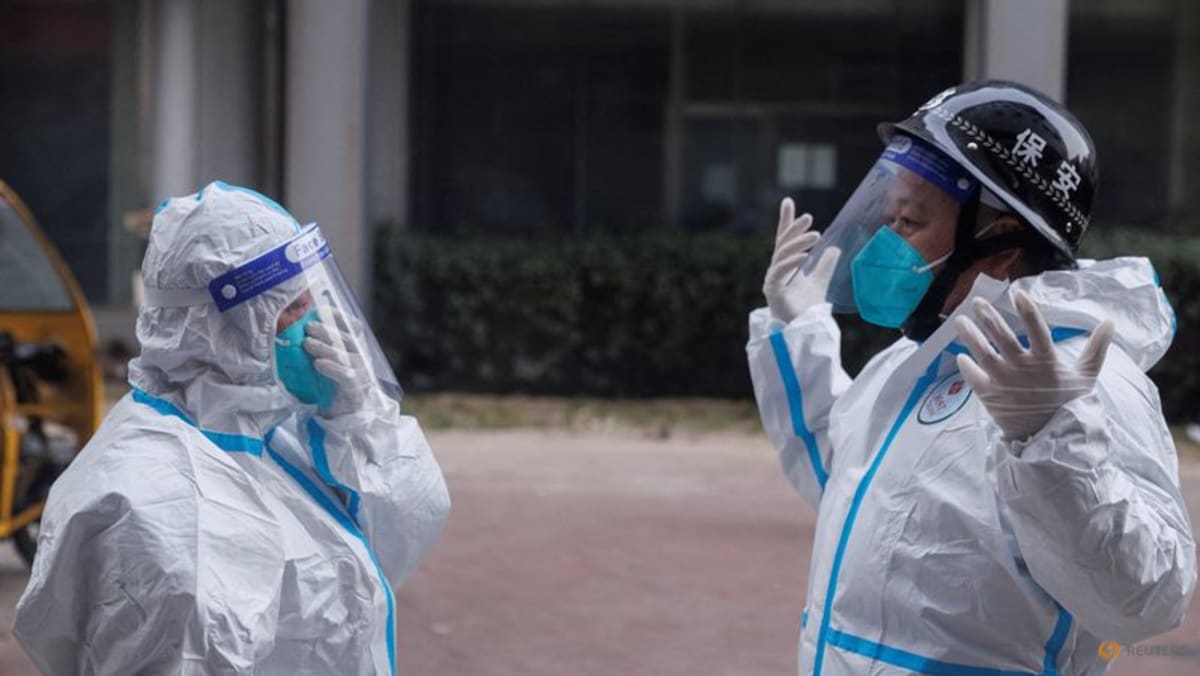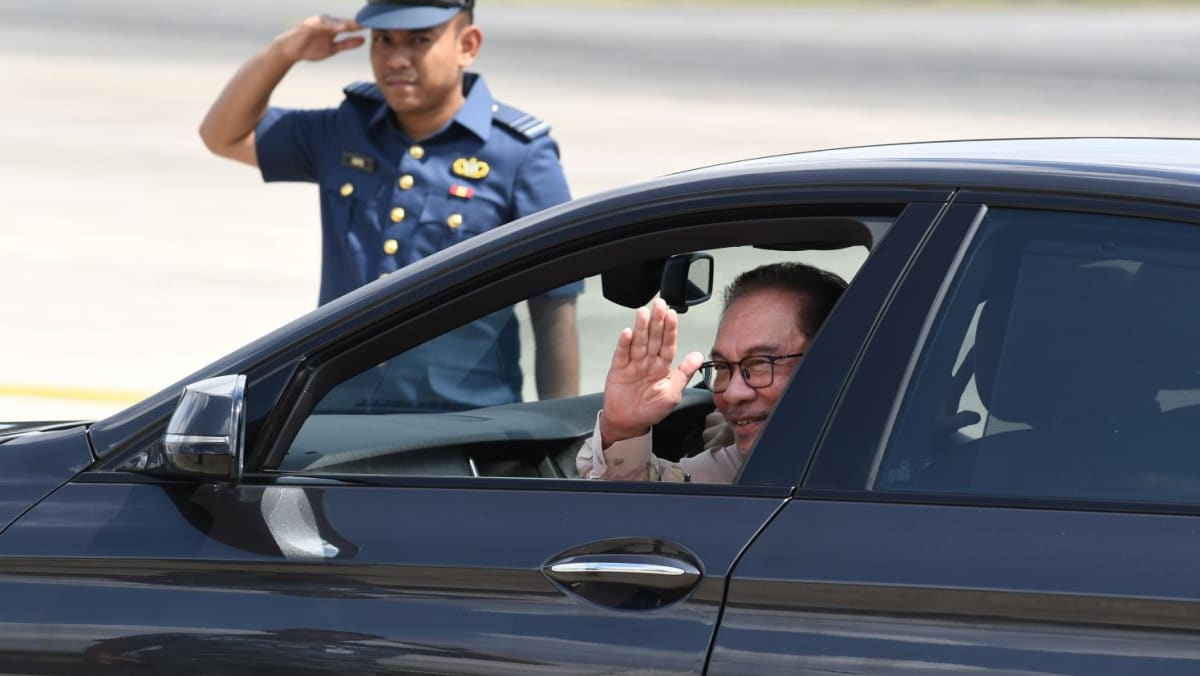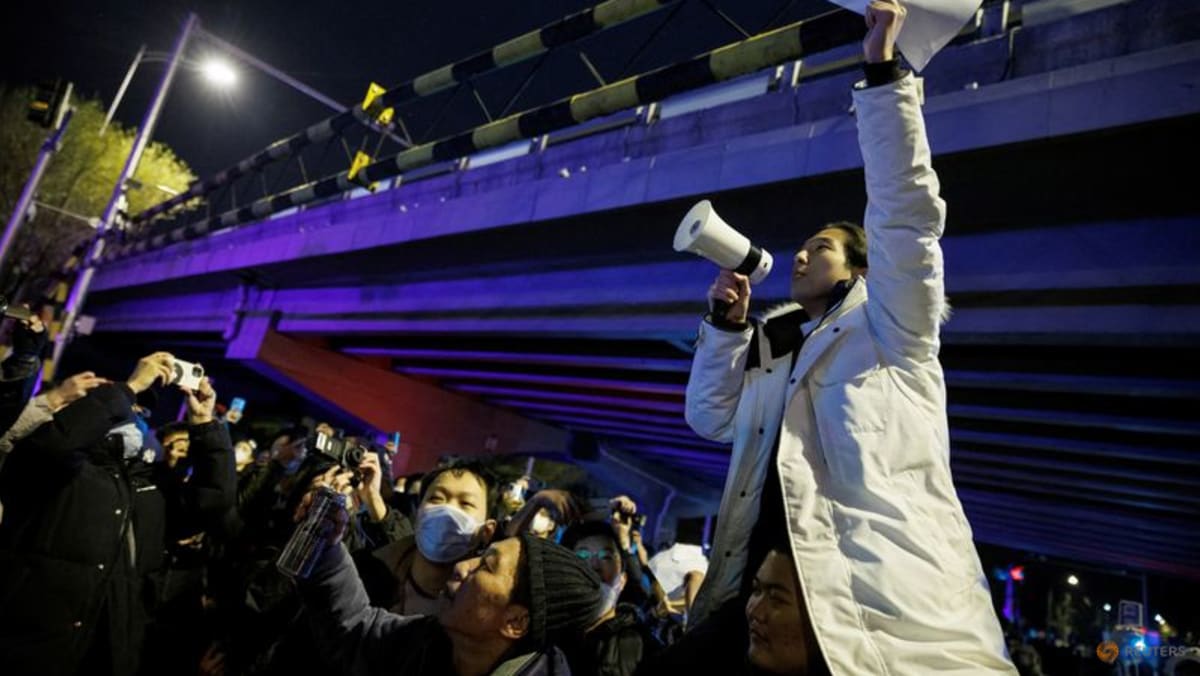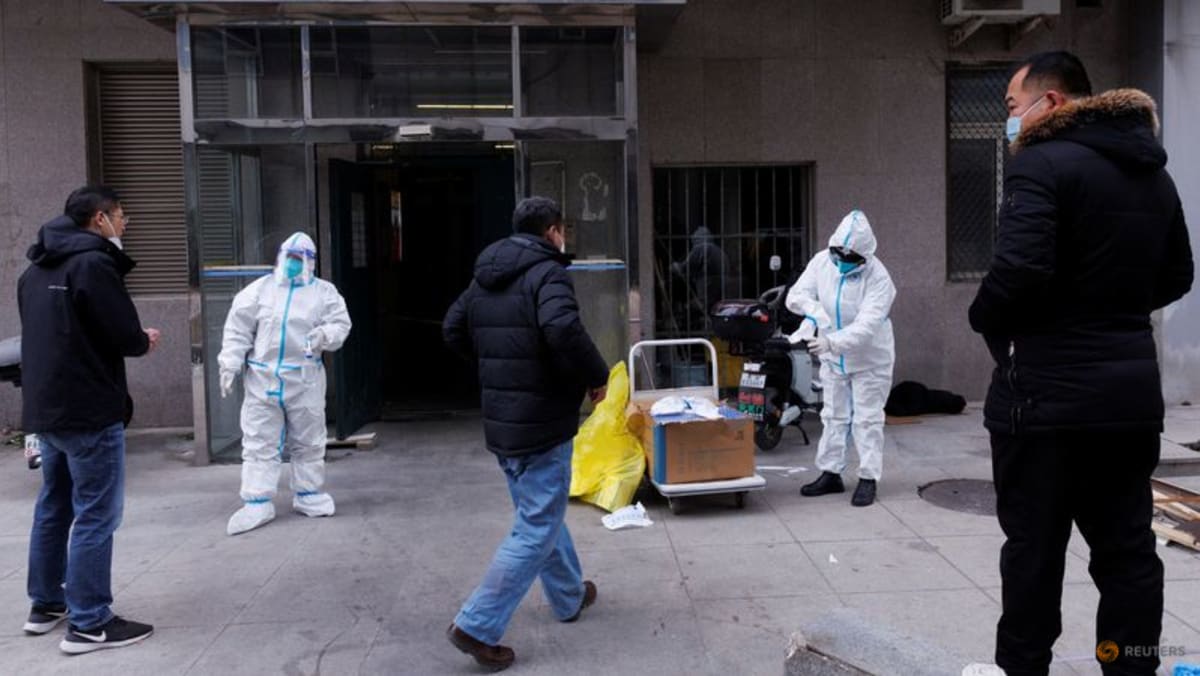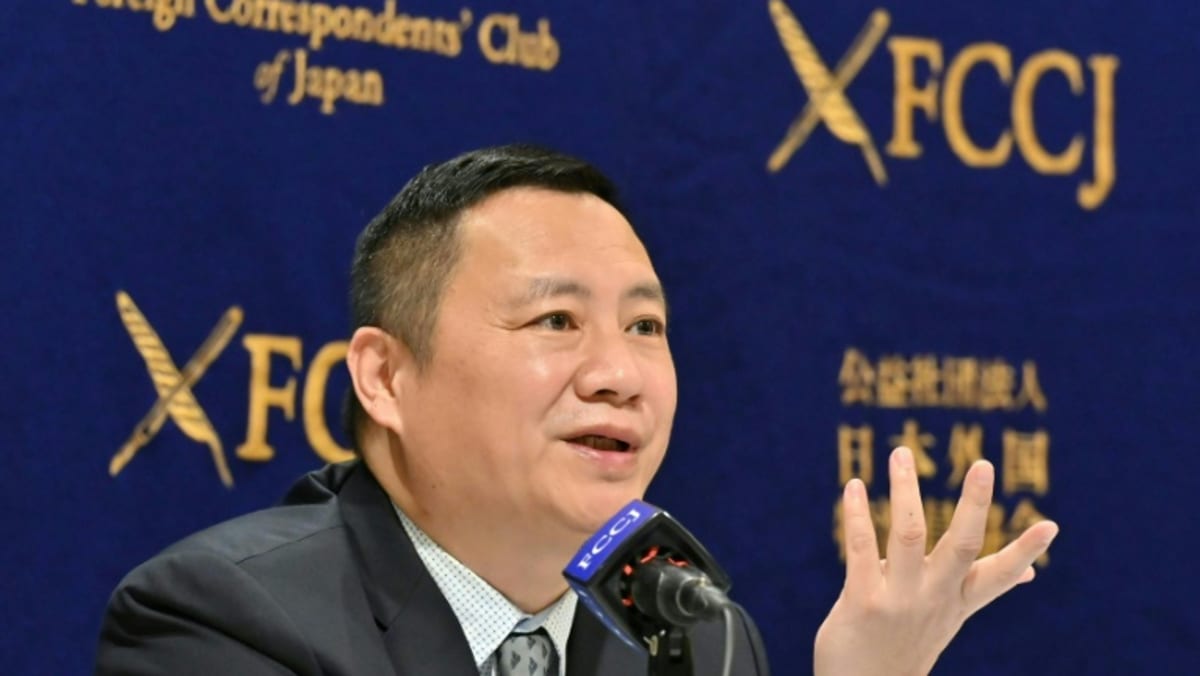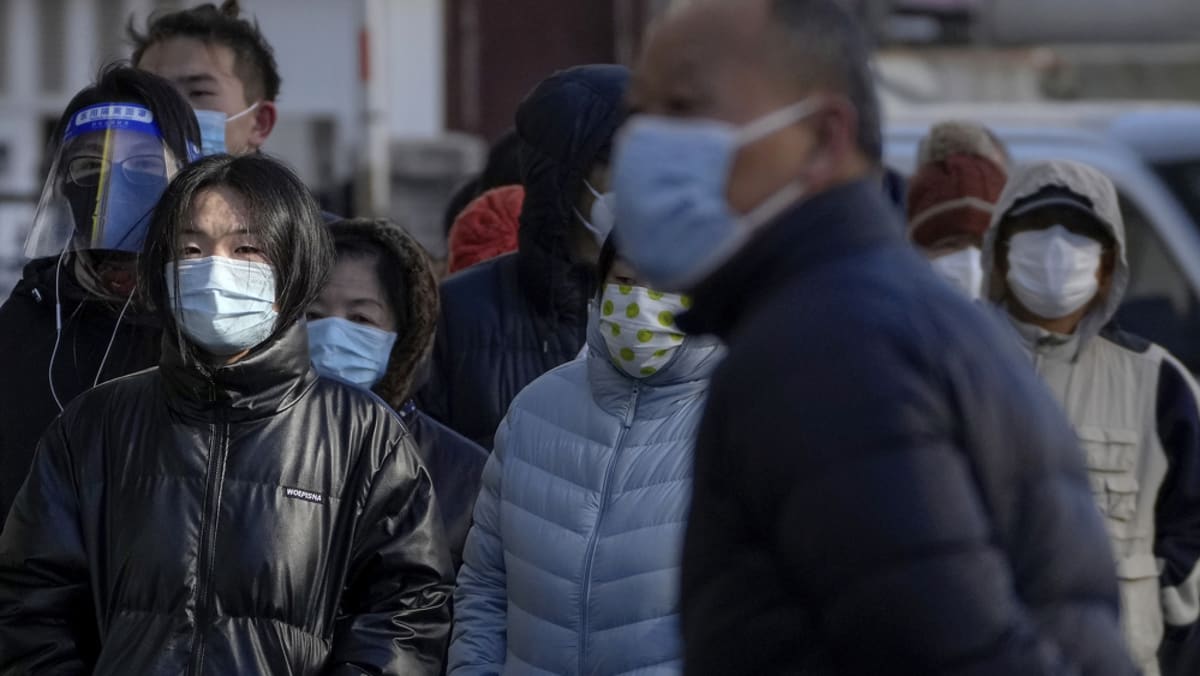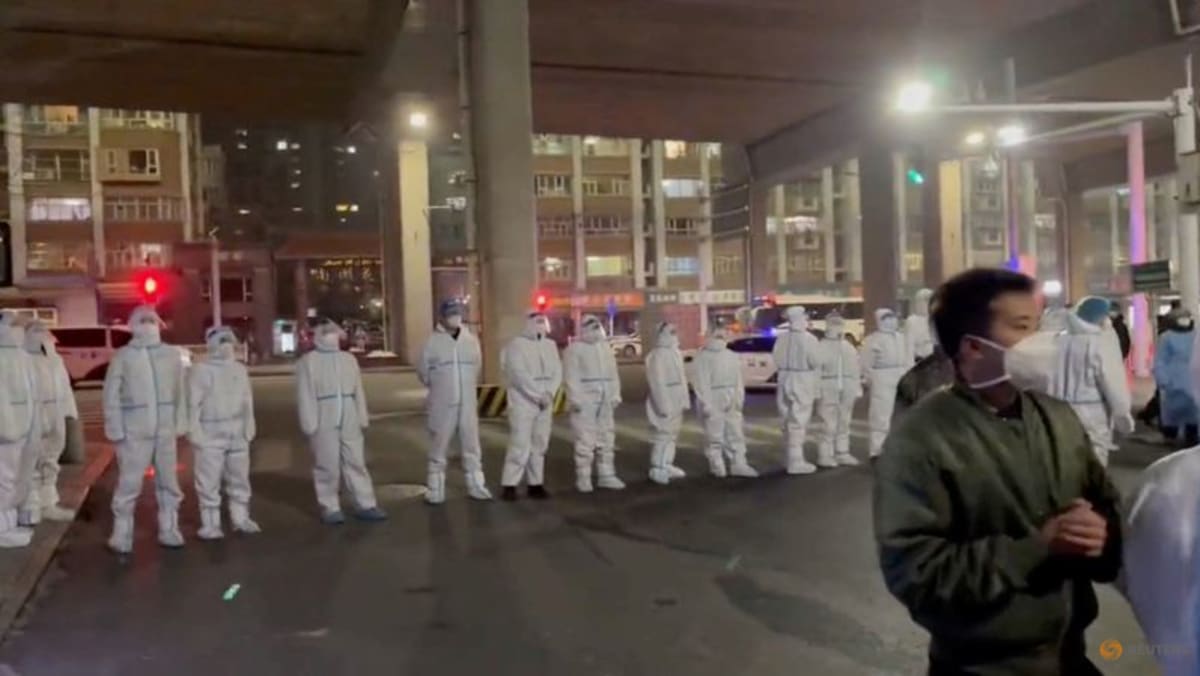
BEIJING: More Chinese cities including Urumqi in the far west announced easing of coronavirus curbs on Sunday (Dec 4), as China tries to make its zero-COVID policy more targeted and less onerous after unprecedented protests against restrictions last weekend.
Urumqi, the capital of the Xinjiang region and where the protests first erupted, will reopen malls, markets, restaurants and other venues from Monday, authorities said, ending strict lockdowns after months.
There was no sign of any significant unrest this weekend, although police were out in force in the Liangmaqiao area of Beijing and in Shanghai around Wulumuqi Road, which is named after Urumqi. Both sites saw protests a week ago.
A deadly fire last month in Urumqi sparked dozens of protests against COVID-19 curbs in over 20 cities after some social media users said victims had been unable to escape the blaze because their apartment building was locked down. Authorities denied that.
The protests were an unprecedented show of civil disobedience in mainland China since President Xi Jinping took power in 2012.
In the days since, numerous cities have announced the easing of lockdowns, testing requirements, and quarantine rules.
Vice Premier Sun Chunlan, who oversees COVID-19 efforts, said last week the ability of the virus to cause disease was weakening - a change in messaging that aligns with what many health authorities around the world have said for more than a year.
China is set to further announce a nationwide easing of testing requirements as well as allowing positive cases and close contacts to isolate at home under certain conditions, people familiar with the matter told Reuters last week.
RULES LIFTED
For the time being, steps to ease restrictions have varied across the country.
From Monday, people in Shanghai will no longer have to show a negative COVID-19 test to take public transport and visit parks, authorities announced on Sunday.
Earlier on Sunday, the city of Nanning, capital of the southern region of Guangxi, cancelled a requirement for a negative COVID-19 test to take the subway.
On Saturday in Beijing, authorities said the purchase of fever, cough and sore throat medicines no longer required registration. The restriction had been imposed because authorities believed people were using the medication to hide COVID-19 infections.
Authorities in various districts in the capital have in recent days announced that people who test positive for the virus can quarantine at home.
Some inconsistencies as the restrictions are eased have angered people, including a requirement in some places for a negative COVID-19 test even though mass testing centres were closing.
In Beijing and Wuhan city, where the virus first emerged in late 2019, that caused lengthy queues at the few remaining testing booths.
"Are they stupid or just plain mean?" one social media user asked. "We shouldn't shut down COVID-19 testing stations until we get rid of the COVID-19 test pass."
New daily case numbers dropped nationwide to 31,824, authorities said on Sunday, which may be due in part to fewer people being tested. Authorities also reported two new COVID-19 deaths.
https://news.google.com/__i/rss/rd/articles/CBMiXGh0dHBzOi8vd3d3LmNoYW5uZWxuZXdzYXNpYS5jb20vYXNpYS9jaGluYS1jaXRpZXMtdXJ1bXFpLWJlaWppbmctY292aWQtMTktY3VyYnMtZWFzZS0zMTIwOTkx0gEA?oc=5
2022-12-04 06:54:02Z
CBMiXGh0dHBzOi8vd3d3LmNoYW5uZWxuZXdzYXNpYS5jb20vYXNpYS9jaGluYS1jaXRpZXMtdXJ1bXFpLWJlaWppbmctY292aWQtMTktY3VyYnMtZWFzZS0zMTIwOTkx0gEA
